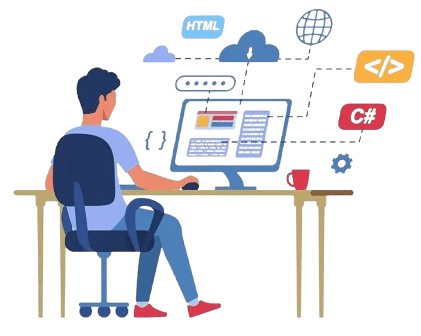
In today’s rapidly evolving tech landscape, the role of a full stack developer has become increasingly vital. These professionals are the versatile engineers who can handle both the front-end and back-end of web applications, making them highly sought after by employers. However, becoming a successful full stack developer requires more than just knowing how to code; it demands a strategic combination of skills, hands-on experience, and continuous learning. This article explores what it takes to thrive in this dynamic field, focusing on essential skills and how to build a compelling portfolio that showcases your capabilities.
Essential Skills and Technologies for Aspiring Full Stack Developers
To excel as a full stack developer, you need to master a broad spectrum of skills that span both client-side and server-side development. At the core, proficiency in languages like HTML, CSS, and JavaScript is fundamental for creating engaging and responsive user interfaces. On the backend, familiarity with frameworks such as Node.js, Django, or Ruby on Rails is crucial for building robust server-side applications. In addition, understanding databases—both SQL and NoSQL—is essential for storing and retrieving data efficiently. Developers should also grasp version control systems like Git, which facilitate collaboration and code management across projects.
Beyond core development skills, a successful full stack developer needs to stay updated with modern tools and practices. Knowledge of RESTful API design enables seamless communication between different parts of an application, while familiarity with frontend libraries like React or Angular enhances UI development. On the server-side, understanding deployment processes, containerization with Docker, and cloud services like AWS or Azure can significantly improve a developer’s ability to deliver scalable solutions. Equally important is a grasp of security best practices to protect applications from vulnerabilities. Continuous learning and adaptability are vital, as the tech ecosystem is always advancing, and staying current ensures relevance in the job market.
Strong problem-solving abilities and a good understanding of software architecture are also key. A full stack developer must be able to analyze requirements, troubleshoot bugs, and optimize performance across all layers of an application. Soft skills such as effective communication, teamwork, and time management are essential in collaborative development environments. Ultimately, the blend of technical prowess and interpersonal skills enables a full stack developer to contribute meaningfully to projects from start to finish, making them invaluable members of any development team.
Building a Strong Portfolio and Gaining Practical Experience
Creating a compelling portfolio is one of the most effective ways for aspiring full stack developers to demonstrate their skills to potential employers or clients. Start by developing personal projects that showcase your ability to build complete applications—from designing intuitive user interfaces to implementing server logic and database integration. These projects could range from simple blogs or task managers to more complex applications like e-commerce sites or social networks. Document your development process thoroughly, highlighting the technologies used, challenges faced, and solutions implemented. A well-organized portfolio not only exhibits your technical skills but also reflects your problem-solving approach and creativity.
Gaining practical experience goes beyond self-initiated projects. Contributing to open-source initiatives allows you to collaborate with experienced developers and understand real-world development workflows. Internships or freelance work provide opportunities to work on live projects, exposing you to client requirements, project deadlines, and team dynamics. Participating in hackathons or coding bootcamps can further sharpen your skills under pressure and introduce you to new tools and techniques. The key is to seek diverse experiences that challenge you and expand your technical and soft skills. Over time, these efforts build confidence and credibility, making you more attractive to employers seeking full stack talent.
In addition to hands-on work, continuous learning through online courses, tutorials, and tech communities keeps your knowledge fresh and relevant. Engaging in forums, attending meetups, or joining developer groups fosters networking and mentorship opportunities. Remember, a successful full stack developer not only possesses technical expertise but also demonstrates a proactive attitude toward growth and learning. As you accumulate experiences and improve your portfolio, your chances of landing your dream role or launching your own projects increase exponentially.
Becoming a successful full stack developer is a journey that combines acquiring a diverse set of skills with gaining practical, real-world experience. Mastery of relevant technologies, along with a proactive attitude toward continuous learning, sets the foundation for a thriving career. Equally important is building a strong portfolio that showcases your ability to develop complete applications and your problem-solving skills. With dedication, curiosity, and hands-on practice, you can position yourself as a versatile developer capable of tackling the complexities of modern web development and making a meaningful impact in the tech industry.
